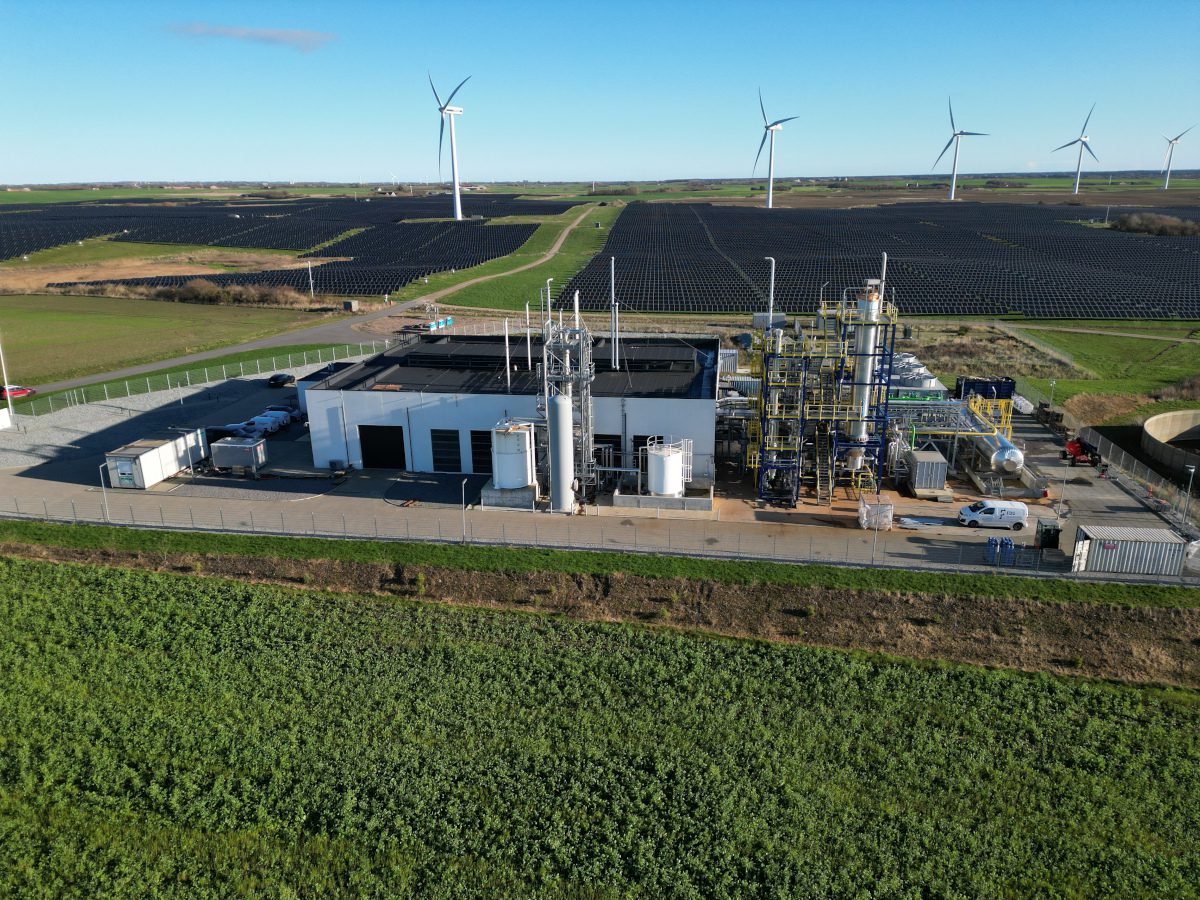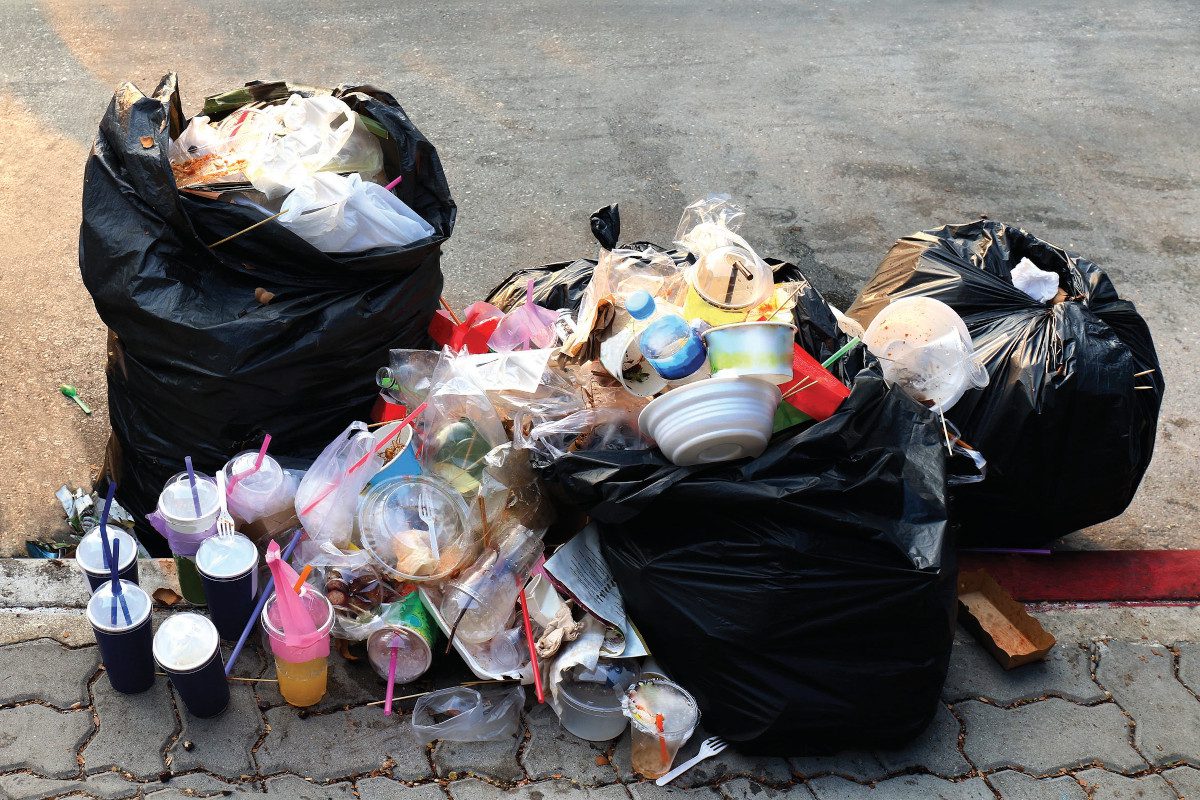UK energy-from-waste (Efw) operator enfinium has launched the UK’s first carbon capture pilot at an EfW site, the group announced on 16 September. The launch is described as a milestone for the sector and for the group’s plans to deploy Carbon Capture and Storage (CCS) technology across its UK facilities to generate carbon removals at scale.
The technology, a containerised, scaled-down version of the CCS technology that enfinium says it could deploy across all of its sites, was supplied by global green technology company Hitachi Zosen Inova (HZI). The pilot is installed at enfinium’s Ferrybridge-1 energy from waste facility in Knottingley, West Yorkshire, and is capturing one tonne of CO2 emissions from the plant’s operations each day.
The trial is being used to demonstrate how the technology can be applied at scale, said the group, and is collecting real operational data on performance, such as CO2 capture rate and solvent degradation, and will assess the performance of different amine solvents. The trial will run for at least 12 months.
Earlier this year, enfinium announced a “Net Zero Transition Plan”, which appears to set out how it will decarbonise its own operations and deliver up to 1.2 million tonnes of carbon removals a year in the 2030s, underpinned by an investment programme of up to £1.7 billion. The carbon capture pilot is said to mark an important milestone in the group’s plans to deliver carbon removals, helping to inform the future deployment and operation of CCS technology across its sites.
Deploying CCS at EfW facilities generates durable carbon removals, or ‘negative emissions.’ Around 50% of the unrecyclable waste produced by society is made up of biogenic content including organic material such as waste food, plants and paper, which has already naturally absorbed CO2 from the atmosphere. Installing CCS technology at an energy from waste facility enables this CO2 to be permanently captured and stored rather than released back into the atmosphere, resulting in a net carbon removal from the atmosphere.1
The Climate Change Committee’s Progress Report, in July, noted that the UK must accelerate the production of carbon removals to stay on track to achieve Net Zero.2 Recent research by the Oxford Institute for Energy Studies found that the energy from waste sector could contribute up to 8 million tonnes of carbon removals.3
Mike Maudsley, CEO of enfinium, said: “We are proud to have this sector-leading project up and running at our Ferrybridge facility. Carbon capture and storage technology is central to how the UK will be able to decarbonise its unrecyclable waste.
“CCS is also critical to generating carbon removals at scale so the UK can achieve Net Zero. Using carbon capture, the energy from waste sector can provide significant levels of carbon removals and enfinium, with the support of HZI, are taking steps now to achieve this.”
Bruno-Frédéric Baudouin, CEO of HZI, commented: “Working with enfinium to deliver the UK’s first carbon capture pilot at an energy from waste facility is an exciting project. The operational pilot demonstrates our capability to deliver vital decarbonising infrastructure for the waste sector that is critical to the industry’s Net Zero ambitions. The project will meaningfully expand our carbon capture knowledge base and provide a springboard for delivering decarbonisation solutions worldwide. Our vision is to enhance decarbonisation, circularity and supply security for present and future generations, and this project embodies perfectly what we are striving for.”
Olivia Powis, CEO, Carbon Capture and Storage Association, commented: “The launch of CCS at Ferrybridge is very exciting to see. With millions of tonnes of unrecyclable waste produced by the UK, this is an important demonstration of the use of CCS to generate clean power via energy from waste, as well as providing a future route to establishing the UK’s greenhouse gas removal market and enfinium have taken a landmark step with its delivery. Through projects such as the one at Ferrybridge, the UK will be able to meet the clean power by 2030 target.”
Tracy Brabin, Mayor of West Yorkshire said: “I’m delighted to see the fantastic work being piloted in Ferrybridge, continuing the long tradition of energy generation and innovation in West Yorkshire.
“To see this development from enfinium is massively encouraging, as our own modelling shows a need for carbon capture and storage to help us reach our Net Zero ambitions.
“Climate change is one of the biggest global challenges we face, so it’s vital we find new opportunities for innovation that can help us build a greener, more secure region that’s fit for the future.”
On 16 September, enfinium said it was also advancing the planning and consenting programme for the installation of Carbon Capture and Storage at its Ferrybridge 1 and 2 Facilities in West Yorkshire by launching a five-week public consultation, running from 16 September to 20 October 2024. The project was designated as a Project of National Significance earlier this year. To find out more, share feedback, or register for the online webinar, please contact [email protected].
Notes
1 The Intergovernmental Panel on Climate Change states that biogenic matter is carbon neutral at the point of combustion and therefore if you capture that carbon at source, it becomes negative. The CCS technology will capture and permanently store the carbon dioxide that was taken from the atmosphere as the biogenic material grew.
2 Climate Change Committee, “Progress in reducing emissions 2024 Report to Parliament”, 2024, available here: https://www.theccc.org.uk/publication/progress-in-reducing-emissions-2024-report-to-parliament/
3 Oxford Institute for Energy Studies, “Carbon capture from energy-from-waste (EfW): A low-hanging fruit for CCS deployment in the UK”, 2024, available here: https://www.oxfordenergy.org/wpcms/wp-content/uploads/2024/05/CM09-Carbon-capture-from-energy-from-waste-EfW-Final.pdf

















